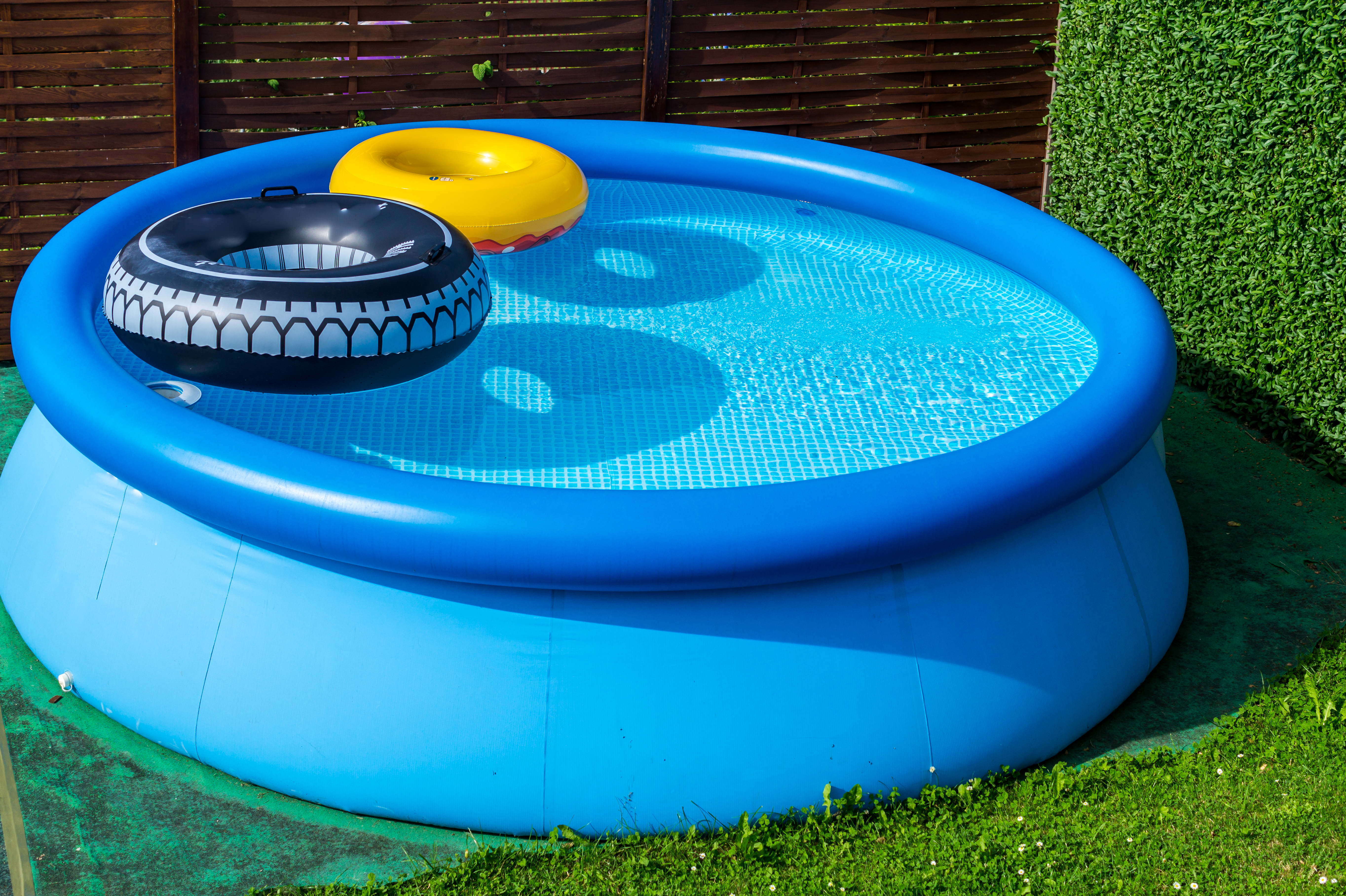 Did you know?
Did you know?
- Draining your chlorinated water into the storm sewer kills fish.
- Salt water pools must always be discharged to the sanitary sewer.
- Never drain your pool, spa or hot tub on a rainy day.
- Discharge your pool, spa or hot tub across your lawn, leading to the storm sewer.
- Don't add chemicals to your pool, spa or hot tub for two weeks before draining.
Chlorinated water and saltwater pools
Saltwater and chlorinated pools contain chemicals needed to keep them clean and safe for swimming. These chemicals include chlorine/bromine, salts, copper-based algaecides, nonylphenols and nonylphenol ethoxylates. These chemicals are deadly to the fish and other organisms that live in our creeks, rivers and lakes. Never drain your pool or hot tub if there are chemicals present in the water.
Your responsibility
As the owner of a private swimming pool, hot tub or spa, you and any pool service provider must maintain and operate it in compliance with your local Sewer Use Bylaw. Your city or municipality sets out requirements for the proper operation, maintenance and seasonal closure of pools, hot tubs, and spas that will protect the area’s water quality, and ultimately your drinking water.
You and your hired pool service provider are legally obligated to report a spill to provincial and municipal authorities if your pool water has gone into a stream, river, lake or storm sewer systems without proper treatment.
What you should do
Chlorinated water:
- Superchlorinate to get rid of the bacteria, algae and organic matter.
- Dechlorinate the water before discharging by placing a dechlorination tablet in the water then letting it sit for one week or longer to allow the chlorine to dissipate.
- Drain onto your lawn, if it can be properly absorbed into the ground without flowing onto your neighbours property.
- Running the pump will assist in the dissipation of the chlorine. Sunlight also helps.
- Filter backwash water and dechlorinate before discharging.
- Test your pool, hot tub or spa to ensure chemical levels are as close to zero as possible before discharging it.
- Report any spill of untreated pool water to the provincial and municipal authorities if it has gone into a stream, river, lake or storm sewer system.
Salt water:
- Discharge salt water pools to the sanitary system connection on your property. The water from salt water pools has such high levels of chlorides that this water cannot be discharged to the storm sewer system.
- Have the salt water hauled by a Ministry of the Environment approved and licensed hauler.
The difference in sewer systems
Sanitary sewer
This system collects sewage and wastewater from toilets and sinks in your home. This water goes to a wastewater treatment plant where it is treated.
Storm sewer
This system collects rainwater, melted snow, and surface water through storm grates that drain directly into the nearest creek, river or lake. This water is NOT treated.
Remember: storm water is not treated before it reaches your local water source. The chemicals you put down the storm drain go directly into our rivers and creeks.